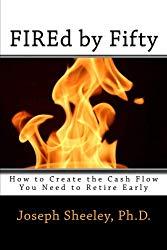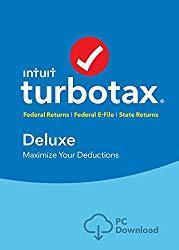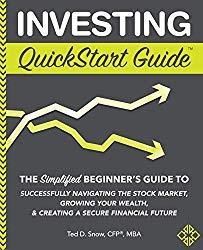I’ve been getting questions lately about the subject of wash sales. While I’m not an accountant (and you should check with one to make sure I’m right) here’s an explanation of what a wash sale is, which every investor should know so as to avoid them.
(Note, this site contains affiliate links. When you click on an affiliate link and buy something, The Small Investor will get a small commission for the referral. You are charged nothing extra for the purchase. This helps keep The Small Investor going and free. I don’t recommend any products I do not fully support. If you would like to help but don’t see anything you need, feel free to visit Amazon through this link and buy whatever you wish. The Small Investor will get a small commission when you do, again at no cost to you.)

FIREd by Fifty: How to Create the Cash Flow You Need to Retire Early
Often it is a good idea to take losses to offset gains. Let’s say that you’ve had some big gains, but also bought a stock that just hasn’t worked out. If you still believe in the company, and think they have good long-term prospects, you may not want to sell it, for fear that you might jump out just before the big move upwards. So let’s say that you sell the stock so you can book the loss, and then immediately put in an order to buy more shares. You have just committed a wash sale, which will prevent you from deducting the loss on the stock. The point is that the IRS doesn’t want you deducting losses when you really haven’t closed the position. The same would be true if you bought more shares just before you sold the original ones.

TurboTax Deluxe + State 2018 Tax Software [PC Download] [Amazon Exclusive]
To avoid a wash sale, you must not buy more shares of a stock within 30 days of selling the original shares for a loss, or within 30 days afterwards. So if you want to take a loss in a company but still maintain a position, either plan well ahead and buy shares more than 30 days ahead of time, or be ready to wait 30 days afterwards and hope the stock doesn’t take off in the mean time. Of the two strategies, the first option is probably optimal if you’re right about the stock since you may actually regain some of the loss before selling the shares. Waiting 30 days afterwards to rebuy may mean you’ll miss the big move up, or just never get around to buying the shares again.

Investing QuickStart Guide: The Simplified Beginner’s Guide to Successfully Navigating the Stock Market, Growing Your Wealth & Creating a Secure Financial Future
Note that it is not a wash sale if you buy several shares at the same time and then sell part of the position (again, check on this), since in that case you are just selling off part of your position and reducing exposure. Note also that when you’re dealing with funds, you can’t sell one fund and buy a substantially similar fund within the 30 day window. For example, selling a Vanguard S&P 500 fund and buying an S&P500 ETF.

Want all the details on using Investing to grow financially Independent? Try The SmallIvy Book of Investing.
One of the main advantages in long-term investing is the ability to delay capital gains taxes. As a company becomes more valuable and increases in price as a result, as long as you don’t sell and realize a capital gain, your investment can keep growing without you needing to pay taxes on the increase in value. This allows the money you would have been paying in taxes to compound and grow more income for you. This is true even in a taxable account.
If you enjoy The Small Investor and want to support the cause, or you just want to learn how to become financially independent, please consider picking up a copy of my new book, FIREd by Fifty: How to Create the Cash Flow You Need to Retire Early This is the instruction manual on how to become financially independent.
Have a burning investing question you’d like answered? Please send to [email protected] or leave in a comment.
Follow on Twitter to get news about new articles. @SmallIvy_SI
Disclaimer: This blog is not meant to give financial planning or tax advice. It gives general information on investment strategy, picking stocks, and generally managing money to build wealth. It is not a solicitation to buy or sell stocks or any security. Financial planning advice should be sought from a certified financial planner, which the author is not. Tax advice should be sought from a CPA. All investments involve risk and the reader as urged to consider risks carefully and seek the advice of experts if needed before investing.
